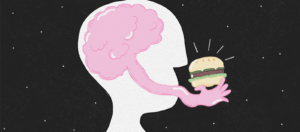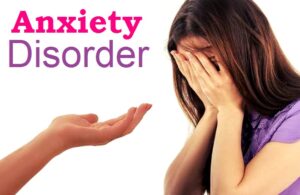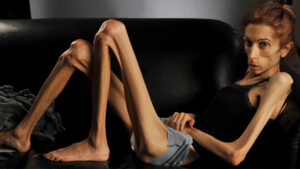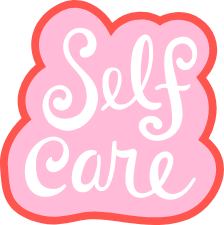Do you often find yourself overeating when you’re feeling anxious? If so, you’re not alone. Many people turn to food in times of stress, and this can lead to weight gain and other health problems. In this blog post, we will discuss some tips for dealing with anxiety eating. We’ll help you learn how to stop overeating and get your life back on track.
Contents
What Is Anxiety Eating? 
Anxiety eating, also known as emotional eating, is when someone turns to food to cope with their anxiety or stress. This can manifest in two different ways: either overeating or undereating. Overeating is the most commonly discussed form of anxiety eating, but both are equally harmful and can lead to serious consequences like weight gain, malnutrition, and even anorexia or bulimia.
Anxiety eating often starts as a way to comfort oneself during difficult times. For example, if you’re going through a break-up or a job loss, you might turn to your favorite comfort foods to make yourself feel better. However, what starts as an occasional coping mechanism can quickly turn into an unhealthy habit.
The Connection Between Anxiety And Eating
Anxiety and eating are often connected because anxiety can lead to emotional eating. Emotional eating is when someone eats in response to their emotions, rather than out of hunger. This can happen when someone is feeling stressed, anxious, or bored.
For example, imagine that you had a really bad day at work. You come home feeling stressed and upset. Instead of relaxing or doing something to take your mind off of your bad day, you decide to eat. You eat even though you’re not hungry, and you keep eating until you feel better. This is an example of anxiety eating.
Anxiety eating can be a problem because it can lead to overeating. Overeating can lead to weight gain, and it can also be a sign of an underlying eating disorder.
Symptoms
When someone experiences anxiety about eating, they may feel out of control and eat large amounts of food in a short period. Symptoms of anxiety eating include: Eating more than you planned or intended to eat, even when you’re not hungry to the point of feeling sick. Feeling out of control while eating and having guilt or shame after overeating. The foremost warning sign is that you eat high-calorie or unhealthy foods very frequently.
Risk Elements
Some major causes are anxiety disorders that lead to emotional eating. They include:
Generalized Anxiety Disorder
Anxiety eating is a common symptom of Generalized Anxiety Disorder (GAD). When someone with GAD feels anxiety, they may turn to food as a way to cope. This can be due to a number of reasons, including the need to soothe oneself, a distraction from anxiety-inducing thoughts, or simply because anxiety increases appetite.
For some people with GAD, anxiety eating may lead to weight gain and further anxiety about their appearance. This can create a vicious cycle in which anxiety leads to overeating, which leads to more anxiety.
Obsessive-Compulsive Disorder
OCD is a mental illness that can cause anxiety eating. People with OCD often have intrusive obsessions, that lead them to perform certain rituals, or compulsions. These compulsions are often related to food and eating. For example, someone with OCD might obsessively worry about contamination and germs. This could lead them to compulsively avoid certain foods. Someone with OCD might also have obsessive thoughts about their weight or body shape.
PTSD
Individuals with PTSD may avoid certain foods altogether because they associate them with the trauma they experienced. For instance, someone who was assaulted while walking home from getting ice cream may thereafter avoid ice cream entirely. Or, someone who was trapped during a fire may develop anxiety around anything smoky-smelling or tasting.
Another way that PTSD can cause anxiety around eating is by triggering flashbacks while an individual is eating. These memories can be so distressing that the person either stops eating altogether or becomes nauseous and vomiting. In some cases, people with PTSD will only feel safe enough to eat if they are doing so in a specific place, like their home, or with specific people, like their partner.
Individuals with PTSD may also find that their appetite changes; some people lose their appetite entirely while others find themselves overeating or craving certain foods.
Phobias
The anxiety caused by the phobia can lead to increased stress levels. This can make people more likely to comfort eat or binge eat as a way to cope with the anxiety. Additionally, some phobias may directly cause anxiety around food. For example, someone with agoraphobia may avoid going to the grocery store because they are afraid of having a panic attack in public.
This can lead to them not having access to healthy food and instead relying on unhealthy comfort foods. Finally, some phobias can trigger anxiety eating by disrupting normal eating patterns. For example, someone with social anxiety may avoid eating in front of others, which can lead to them skipping meals or not getting enough nutrition.
Panic disorder
People with panic disorder may become anxious about food and eating. This can lead to a fear of eating, which can in turn lead to anxiety about not being able to eat. Second, people with panic disorder may worry that they will have a panic attack while they are eating. This can lead to avoidance of certain foods or situations where eating might trigger a panic attack.
Finally, people with panic disorder may develop body dysmorphic disorder, which is a condition characterized by an intense preoccupation with a perceived flaw in one’s appearance. This can lead to anxiety about eating and avoiding certain foods that might make the perceived flaw more noticeable.
What Are The Eating Disorders That Can Occur?
Many eating disorders occur with anxiety. Major of them are explained below in deep detail.
ARFID
Avoidant/Restrictive Food Intake Disorder is when a person becomes anxious about food. They may be afraid of choking, vomiting, or gaining weight. This can lead to them becoming underweight or malnourished.
Anxiety can cause people to become so fixated on their diets and weight that they develop an intense fear of eating anything that might be “off-plan.” This can lead to a preoccupation with food and an avoidance of any foods that are not deemed safe.
Anorexia Nervosa
This is when a person starves and becomes extremely thin. They may see themselves as overweight, even if they are not. Anorexia can be deadly if not treated.
An anxiety eating disorder is characterized by a fear of gaining weight, as well as an obsession with food and body image. This can lead to extreme measures to avoid eating, such as self-induced vomiting or excessive exercise. Therefore, anxiety about food can lead to anorexia nervosa, a serious and potentially life-threatening eating disorder.
Bulimia Nervosa
Bulimia Nervosa is when a person overeats and then purges the food by vomiting or using laxatives. Anxiety can lead to Bulimia Nervosa in a few different ways.
First, anxiety can lead to a preoccupation with food and weight. This can cause someone to become fixated on their appearance and how they look to others.
Secondly, anxiety can lead to a need for control. This need for control may manifest itself as an obsession with food and dieting. Finally, anxiety can also lead to a sense of isolation and loneliness. This isolation can cause someone to turn to food as a source of comfort. All of these factors together can create the perfect storm for developing Bulimia Nervosa.
Binge Eating Disorder
This is when a person overeats without purging. This can lead to obesity and other health problems. Anxiety eating, or binge eating disorder, is a serious problem that can hurt your life. The person tends to overeat which makes it difficult to control his food intake. When you’re anxious, you may feel like you need to eat more to cope with the stress. This can lead to weight gain and other health problems.
How Medications Can Help?
There are several medications that can be used to help manage anxiety and anxiety disorders. These include:
- Antidepressants: Selective serotonin reuptake inhibitors (SSRIs) are commonly prescribed for anxiety and can help to reduce overeating behaviors.
- Anti-Anxiety Medication: Benzodiazepines such as Xanax or Valium can be effective in reducing anxiety symptoms, however, they can also be addictive and should only be used short-term.
- Beta-Blockers: These are typically used to treat heart conditions but can also help manage anxiety by reducing physical symptoms such as rapid heartbeat or sweating.
It is important to speak with a doctor or mental health professional before starting any medication for anxiety as they can help to determine which medication is right for you and monitor any potential side effects. In some cases, anxiety medications may not be necessary and other treatment options, such as therapy, may be more effective.
How Therapies Can Help?
Many different therapies help manage anxiety eating. Some very common therapies are as follows:
Cognitive Behavioral Therapy
One of the most common is Cognitive Behavioral Therapy. It helps people to identify and change the negative thoughts and behaviors that contribute to their anxiety eating.
For people who suffer from anxiety eating, CBT can help them to overcome their disorder by teaching them how to change their thinking patterns and behaviors surrounding food.
For example, someone with anxiety eating may have negative thoughts about themselves whenever they eat anything that isn’t “perfectly healthy.” They may feel guilty and ashamed after eating even a small amount of food that they deem as unhealthy. CBT would help this person to learn how to reframe their thoughts about food and their bodies.
Interpersonal Therapy
Another therapy that can be helpful for anxiety eating is Interpersonal Therapy. IPT focuses on helping people to improve their relationships with others. This can be helpful because often anxiety eating is triggered by social situations or difficult emotions such as loneliness, sadness, or anger.
IPT helps people to understand and change the way they relate to other people. It can be an effective treatment for anxiety eating, as it can help people to learn how to deal with their anxiety in a more constructive way. It can also teach people skills for dealing with difficult emotions and situations in a more positive way, which can help them to avoid overeating in response to anxiety.
Acceptance And Commitment Therapy
ACT helps anxiety eating in a few ways. One, it helps to increase mindfulness of the present moment. This means that you are more aware of your thoughts and feelings as they happen, without getting caught up in them. This reduces anxiety about future events or past experiences that may have been triggering your anxiety about eating.
Two, ACT teaches you how to accept your thoughts and feelings, rather than trying to control or change them. This can help to reduce the amount of stress you feel, which can also be a trigger for anxiety eating. Finally, ACT teaches you how to take action in line with your values, despite your anxiety. This can help you to stay motivated and focused on what is important to you, rather than succumbing to anxiety eating.
Dialectical Behavior Therapy
Dialectical Behavior Therapy can be very helpful for those struggling with anxiety eating. DBT focuses on helping people to understand and accept both their positive and negative emotions, which can be very helpful in managing anxiety and preventing overeating.
DBT skills training also teaches healthy coping mechanisms that can be used when experiencing difficult emotions like anxiety. This involves learning how to relax through deep breathing or progressive muscle relaxation, how to self-soothe with positive self-talk, or how to distract oneself from anxiety-provoking thoughts. All of these skills can be very helpful in managing anxiety and preventing overeating.
Eye Movement Desensitization And Reprocessing
EMDR involves using eye movements to help the brain process and store memories in a different way. It works by helping the brain process memories in a different way. This can help people who have anxiety disorders, PTSD, and other conditions.
EMDR can be done with a therapist or on your own. If you are doing it on your own, you will need to purchase an EMDR kit, which includes a light bar and audio recordings. The light bar is used to create eye movements, and the audio recordings provide guidance for the therapy.
If you are working with a therapist, they will guide you through the process. You will usually start by talking about your anxiety and what triggers it. Then, you will work on processing those memories with EMDR.
Hypnosis
Hypnosis teaches you how to control your anxiety and respond to it in a healthy way. With hypnosis, you can learn to relax your mind and body in response to anxiety-inducing situations. This will help reduce your appetite and prevent you from overeating. You view food in a more positive light and as something that nourishes your body rather than something that controls you.
Hypnosis is safe, natural, and has no side effects. It is also affordable and widely available. Hypnosis is not just about overcoming anxiety about eating- it can also help you change the way you think about food and eating.
Each person is different and will respond to different therapies in different ways. It is important to work with a therapist who can help you find the right therapy for you. If you are struggling with anxiety eating, please seek professional help.
How Self Help Strategies Can Help?

Anxiety eating is a form of emotional eating that can happen when we’re feeling stressed, anxious, or overwhelmed. It’s often a way to soothe ourselves with food, but it can lead to overeating and weight gain. If you’re struggling with anxiety eating, there are some self-care strategies that can help you overcome it.
- One strategy is to find other ways to cope with anxiety and stress. This might include exercise, journaling, deep breathing exercises, or meditation. When you have anxiety, it’s important to find healthy coping mechanisms that don’t involve food.
- Another strategy is to eat mindfully and focus on your meals. This means being present while you’re eating and paying attention to the taste, texture, and smell of your food. Eating mindfully can help you appreciate your food more and avoid overeating.
- Finally, it’s important to be gentle with yourself. If you have an anxiety-eating episode, don’t beat yourself up about it. Everyone makes mistakes and has slip-ups. Just get back on track with your healthy eating habits and continue working on overcoming anxiety eating.
These are some different types of strategies that can help you overcome them. With the right treatment, you can get your anxiety under control and start enjoying food again.
Conclusion
Anxiety eating is a real thing and it is something that should be taken seriously. There are many ways to stop anxiety eating and get your life back on track, and the most important thing is to find what works for you. Don’t wait for the symptoms to be so bad that you can’t function. Get help as soon as possible, and start taking steps to recover. anxiety eating doesn’t have to control your life.
For taking aid from a professional, you may try reaching Mantra Care. We provide effective online anxiety counseling. The team of experts here will help you get rid of your problem for sure. You can book your first session and communicate directly with your mentor. You may also download our free Android or iOS app.











